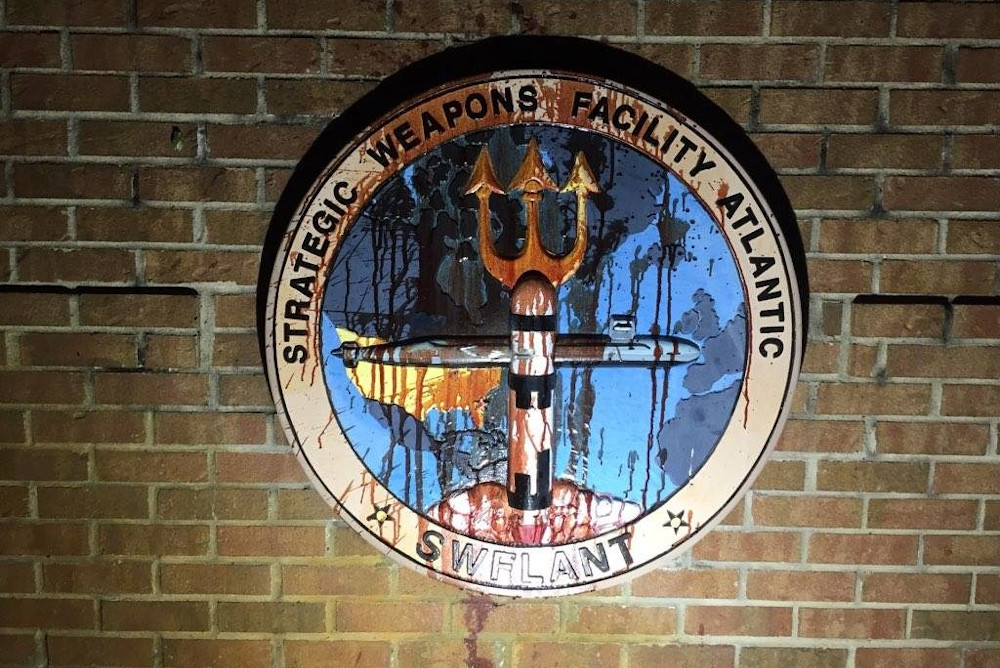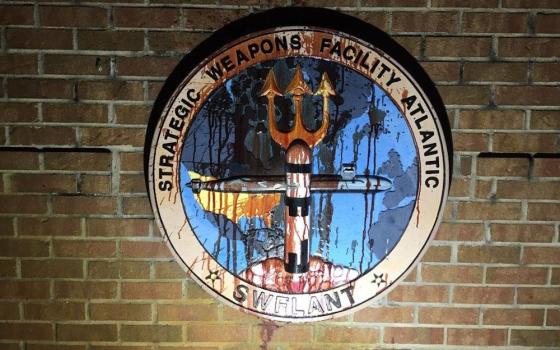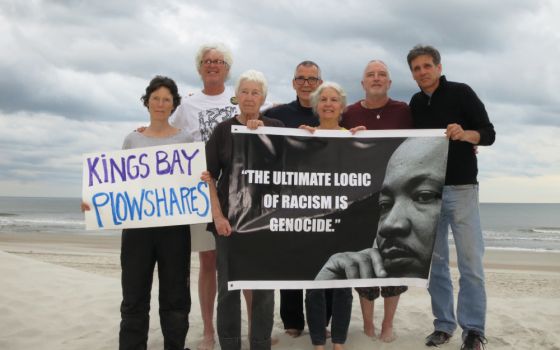
The Naval Submarine Base Kings Bay logo covered in human blood poured by the Plowshares activists during their protest (Courtesy Kings Bay Plowshares 7)
Trials of Nonviolence: The Kings Bay Plowshares story is a three-episode podcast series exploring the motives of seven Catholic peace activists who broke into a nuclear submarine base in Georgia. In the second episode, Bertelsen intern Jesse Remedios tells the story of how the activists feel they were called by the "Spirit." The first episode can be found here.
The entire series is available on Apple Podcasts, Spotify, Google Play, or wherever you get your podcasts.
When seven Catholics broke onto a naval submarine base to protest nuclear weapons, they did so on the 50th anniversary of the assassination of the Rev. Martin Luther King Jr. They then hung banners with King's image and read quotes from his speeches.
What does Martin Luther King Jr. have to do with nuclear weapons? A lot, according to the Kings Bay Plowshares 7.
On today's episode we will hear from:
- The Rev. Martin Luther King Jr., the civil rights leader whose rhetoric informed the Plowshares activists.
- Clare Grady, a Catholic Worker and activist from Ithaca, New York.
- Carmen Trotta, an anti-war activist and member of the New York Catholic Worker who tried to break into the nuclear missile bunkers on the base.
- Martha Hennessy, a retired occupational therapist from Vermont and granddaughter of Dorothy Day, founder of the Catholic Worker movement.
- Patrick O'Neill, a journalist and founder of the Fr. Charlie Mulholland Catholic Worker House in Garner, North Carolina.
Background reading:
- On April 4, 1967, King delivered his speech, "Beyond Vietnam." In the speech, he connected the Vietnam war to civil rights. A month later, King gave another speech on what he called the three major evils, an idea he introduced in "Beyond Vietnam." The Kings Bay Plowshares drew inspiration and included language from "Beyond Vietnam" in their mission statement.
- As part of their protest, the Plowshares activists brought a self-made "Indictment of Trident" with them onto the base. They also left a copy of Daniel Ellsberg's exposé-memoir, The Doomsday Machine, at the entrance of a building on the base.
Audio credits:
- MLK: Beyond Vietnam — A Time to Break Silence. Audio courtesy of The Martin Luther King Jr. Center for Nonviolent Social Change.
- Clare Grady speaking at an event hosted by Fordham University. Audio courtesy of the Kings Bay Plowshares.
[Jesse Remedios is a Bertelsen editorial intern with the National Catholic Reporter. His email is jremedios@ncronline.org. Follow him on Twitter @JCRemedios.]
Advertisement






